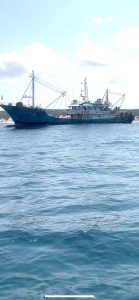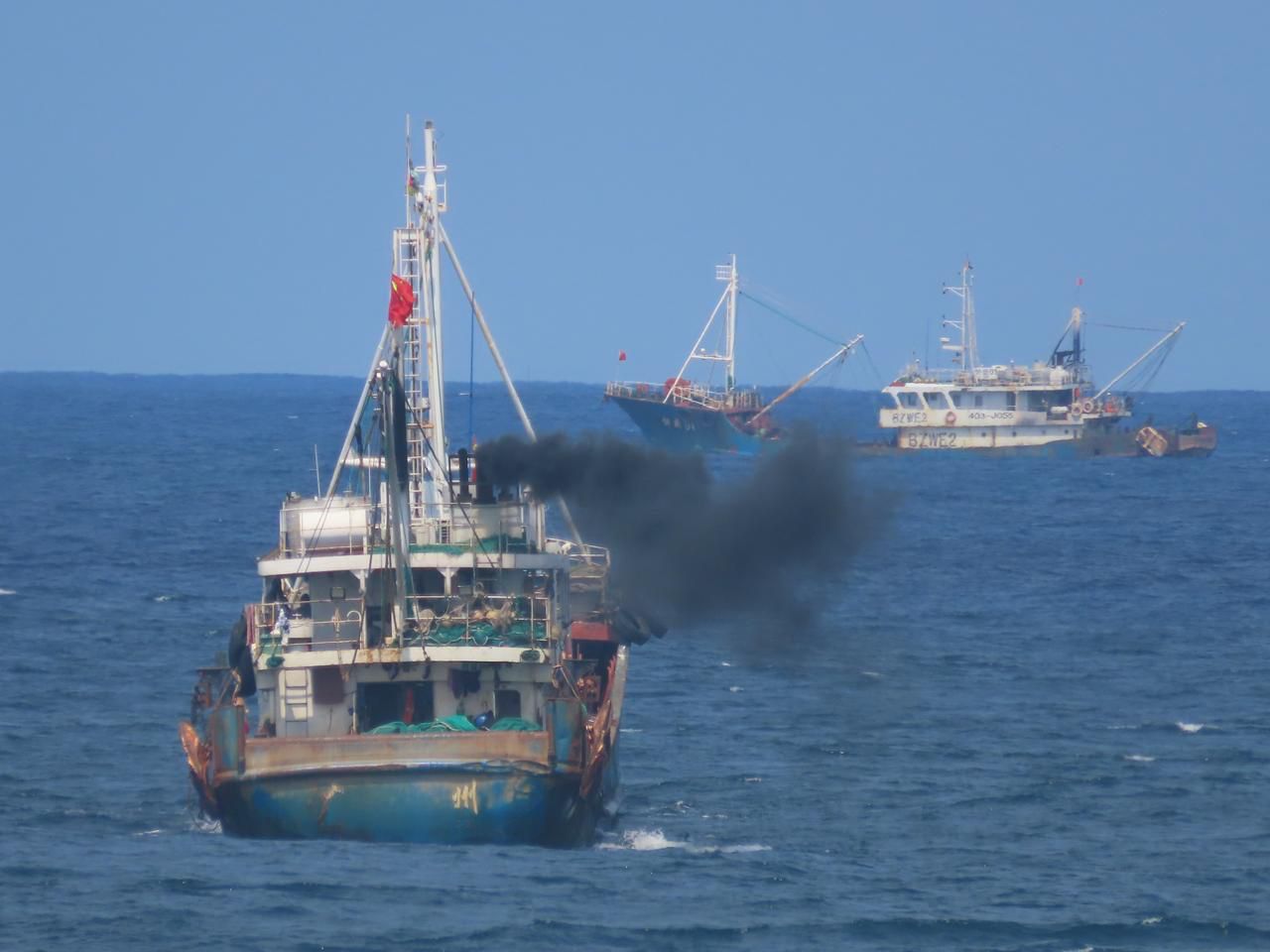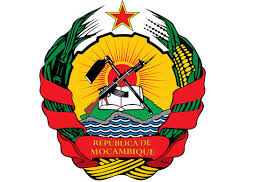Illegal Industrial Trawler Wrecks on Mozambican Reef, Raising Alarms About Ongoing Ecological and Governance Crisis
By Estacio Valoi
On the morning of October 16, 2025, an industrial fishing trawler—identification number BZWE4, 403-J057 ran aground on the barrier reef at Island Rock, near Inhambane, Mozambique. Two additional vessels (BZWE2, 403-J055 and BZWE3, 403-J056) arrived on site to attempt towing operations, but efforts have so far been unsuccessful.
Accordingly to moz24h sources “all three vessels, registered as cargo ships on AIS tracking systems, are clearly industrial fishing trawlers. These misclassifications violate international transparency protocols. The original vessel’s catch was hastily transferred to the other boats, with a portion distributed among nearby community members. The crew abandoned ship shortly after the incident and the boat has remained on the reef since”.
Illegal Activity and Local Impact
This wreck is the result of illegal fishing activity that has become increasingly prevalent in the waters off southern Mozambique. The trawlers regularly operate without identification, turning off AIS systems and fishing dangerously close to shore, often within 20–15m depths. despite clear regulations preventing this. These incidents appear to occur without storm conditions, and in this case, reports suggest the skipper may have fallen asleep.
While these vessels are suspected of bottom trawling – one of the most destructive fishing methods – the presence of such fleets is part of a larger, well-documented pattern. Investigations by groups like the Environmental Justice Foundation (EJF) and academic institutions have linked foreign industrial fishing in Mozambique to widespread illegality, overexploitation, and ecological harm.
Local sources in anonymity for safety reasons, said: “The trawlers come in under the cover of darkness, switching off their AIS, beacons and sometimes even their lights, trawling along our reefs from Praia da Rocha to Ligogo. They steal everything from the reefs – reefs that tourists dive, and communities rely on for food. The reefs are empty, the people are hungry, but the powers line their pockets and turn a blind eye.”
Ecological Emergency
There is growing concern about an imminent fuel leak from the wrecked vessel’s tank, which would devastate the surrounding marine ecosystem and further imperil the food security of already struggling communities. The vessel owners have reportedly refused to take responsibility for any spills citing a lack of insurance.
“Not only should this boat not have been so close in the first place, but now we face a massive ecological disaster if the fuel spills,” shared a local conservationist. “Research shows the region is already suffering due to overfishing and climate change. This spill could be the final blow. We need action NOW.”
Community witnesses report that provincial authorities have declined intervention, citing involvement of “powerful Mozambican authorities”. Chinese script visible on the vessel has led to speculation that the ship may be part of Chinese fleets operating under official contracts with the Mozambican government. These suspicions mirror those raised in multiple independent reports, including EJF’s “A Tide of Injustice” and the LSE’s analysis of Yu Yi Industries, a Chinese company operating extensively on the Sofala Bank.
As outlined in Carta de Moçambique and international sources, many Chinese vessels have been documented fishing during closed seasons, using banned gear, and colluding with local elites to avoid accountability. Mozambican fishers themselves have raised concerns over declining stocks, food insecurity, and abuse aboard foreign-owned vessels.

Jangamo Bay A Region of Global Significance, Ignored
This wreck occurred inside Jangamo Bay, a marine area that includes Island Rock, Paindane, Guinjata, and Coconut Bay. This coastline is internationally recognised as a Mission Blue Hope Spot, as well as an IUCN Important Marine Mammal Area and Shark and Ray Area. Despite this international recognition, no emergency response has been initiated.
This silence from authorities highlights a governance vacuum, where even globally significant marine areas receive no protection from illegal exploitation.
A local resident, speaking under strict anonymity, expressed their dismay:
[
Urgent Calls for Action
This event is a stark reminder of the urgent need for accountability. The wreck at Island Rock is not an isolated incident but a symptom of a broken system – one where illegal industrial fishing, ecological collapse, and local food insecurity are inextricably linked.
Immediate action is needed to:
- Investigate the ownership and operations of the vessels involved.
- Remove the wreck and contain the fuel tank before a spill occurs.
- Hold authorities and fleet operators accountable.
- Strengthen AIS and satellite tracking enforcement.
- Enforce coastal fishing laws and closed zones.
- Invest in community-based sustainable fisheries that protect biodiversity and local livelihoods.
Until the illegal exploitation of Mozambique’s waters is addressed, the ocean’s ability to provide food, jobs, and climate resilience will continue to erode, along with the trust of its people.
In contact with another source, she emphasized that "A navy fleet with fast speedboats, functioning radars along the coast, patrol and rescue helicopters, and naval barracks along the coast are needed to combat these activities, drug and human trafficking. The Mozambican coast, from Roruma to Maputo, is a wide-open door to all these criminals and crimes. And the same can be said of the land borders. They are completely open. Only at the border posts is there a presence of immigration and some police, and most of them are corrupt. Mozambique is a bankrupt country with a total lack of sovereignty at all levels."








